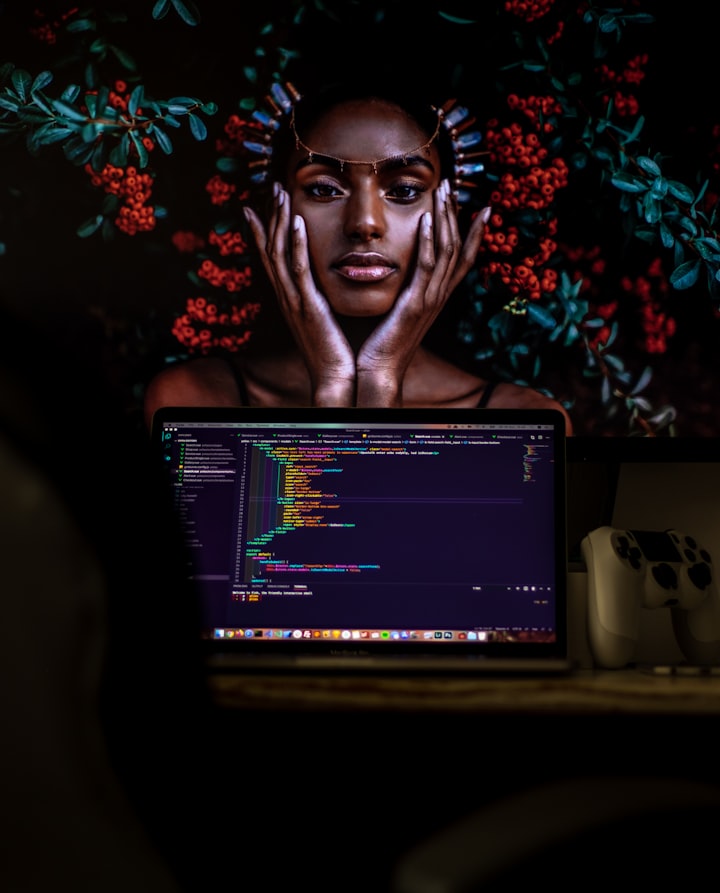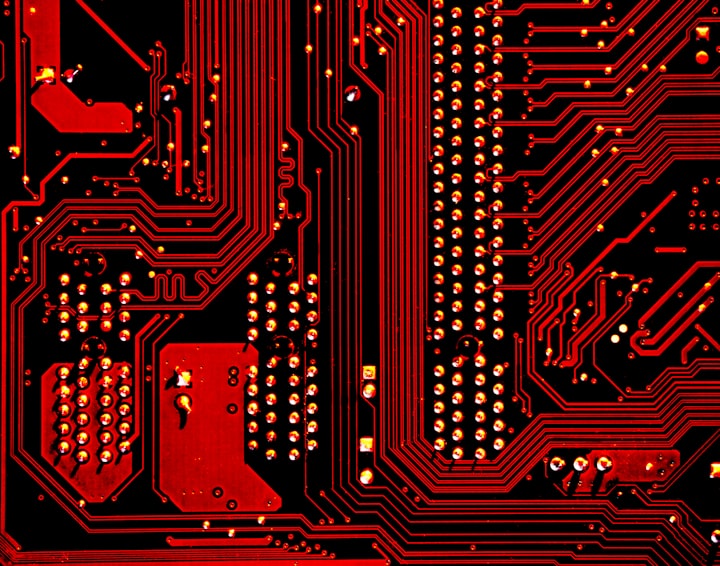Can Computer Programming Heal You?
Reverse psychology on the classic self-help advice

I discovered programming at the age of 35, which, to be honest, I think is pretty late if you compare to the young folks working in high tech who program practically since their fingers were able to type on a keyboard. Before that, I was a full-time musician, working in recording studios and playing gigs all around the world.
I won’t go into the details of the story of why I decided to learn programming but what I’d like to talk about is why I consider that programming healed me and how it transformed me into a new person.
There’s a lot of self-improvement advice out there stating that it’s important to foster your creativity to lead a happy and healthy life. The internet is full of blog posts explaining why it’s important for everyone to have a creative outlet, whether it’s writing some morning pages, take on a craft as a hobby or going out to a karaoke bar with friends and having fun singing badly your favourite tunes after having a drink (or 2, or 3…).
Experts say that creativity allows for better problem solving, releases stress and anxiety, and can even help with mental health issues like depression. Being an artist, it would be strange if I didn’t support this line of thought… But something intrigues me: what about the people who are on the other side of the spectrum?
Not many people talk about the issues arising from an excess of creativity when being creative is a full-time occupation. I’m not talking about problems like creativity running dry or writer’s block or anything related to creative exhaustion, I’m talking about the psychological issues arising as after-effects of cultivating creativity to an extreme.
The Dark Side Of A Full-Time Creative Life
As much as creativity can be a cure to mental health problems created by either unhealthy everyday life routines or childhood traumas, what’s the cure for people suffering from an excess of creativity? Is that even a real issue?
I believe it is because I experienced it first hand. My creativity was so overly stimulated since very early on in life that I grew up to become a completely irrational person. I had no control over my emotions, I was hypersensitive and didn’t know how to deal with the constant overwhelming flow of information and stimuli the world would present me.
I couldn’t make decisions based on anything else other than my feelings and I’d obsess over simple things for the longest periods of time. In short, I was in a constant emotional hell, very prone to depression, and unable to fully face the outside world.
I slowly learned to live with my condition and accept my hyper-sensitivity and social anxiety as a strength instead of a weakness. I found comfort in believing the age-old stereotype: artists need to suffer from depression, be completely neurotic, or have any other kind of disorder or mental illness feeding their creativity to justify their genius. I accepted my depression thinking it was bringing me closer to being like the creative geniuses I admired.
Of course, that was silly.
Even though this stereotype is still present today in society’s perception of creative people, it’s important to know that many studies tried to show the correlation between creativity and mental illness, without any great success.
“There’s only one difference between a madman and me. I am not mad.” — Salvador Dali
How Programming Healed Me
Learning computer programming forced my brain to think rationally, which I was completely unable to do. It provided me with the safety of right and wrong answers: your code either works or it doesn’t. This reality can be incredibly frustrating at times but for an artist like me, where there’s rarely this notion of right and wrong (in Art, rules are made to be broken and everything is subjective), the fact of having my computer give me the exact result of the code I’d written was, in a weird way, a huge relief.
For the first time in my adult life, I felt at peace inside. My inner voices quieted down and I was no longer a slave of this incessant and noisy chatter going on in my head. I found comfort in relying on objective facts like proofs provided by math and science. I wasn’t lost in an endless “grey zone” anymore.
I remember literally feeling like new circuits were being formed in my brain. Every new piece of information I was learning felt like receiving an intense brain massage and this sensation was amazing.
After only a few months, my personality started to change. I began to realize the gaps in my way of life and the way of life of other artists and creatives around me. I saw the lack of organization, the inability to make effective decisions, the oversensitivity that made collaborations between artists and musicians so difficult sometimes… and I started to react to these challenges differently.
I developed objectivity and I could communicate rationally and without emotions, for the sake of work well done. I had control over my emotions, I didn’t feel the need to act on them constantly: I could choose rationally whether my feelings were founded or whether it was better for me to set them aside in specific situations.
I became incredibly curious and started to learn new things for the sake of learning, for this incredible feeling of putting my brain to work on something new. I’d wake up full of energy and couldn’t wait to start learning and applying what I learned by working on ideas of my own.
Not all my friends appreciated the change. In fact, at some point, I decided to do a massive clean-up of my inner circles. Some people were offended by my new objective and rational way of communicating, some felt like the musician in me had disappeared and were disappointed with the new direction my life seemed to be taking, and some others… I just didn’t have the patience for their bullshit anymore. It was a tough time but a necessary step in order to transform my life.
The first 2 years I spent learning programming were the happiest 2 years of my life. I found peace and I found balance. So the question came to my mind: did computer programming heal me? I think it did. I’m so grateful I could discover a passion that encouraged me to develop rational thinking.
Conclusion
I’m not saying programming is the answer for every creative person suffering from an excess of creativity but I believe it’s possible for every creative to find an equivalent activity, whether it’s math, electronics, physics, building a house, or anything else that requires rational thinking.
Programming changed my life on a very deep level. I wouldn’t be the person I am today without it. In fact, I’d probably still be a depressed mess unable to find my true direction in life. Contrary to popular beliefs, becoming more down to earth and rational didn’t affect my creative power, quite the opposite actually.
We don’t need to be depressed, neurotic, or wounded to create. We can be at peace and feel whole. Programming taught me that and through this understanding, I discovered my true self.
This story was originally published at www.earthtoabigail.com
____
If you liked this story, please consider giving it a heart
About the Creator
Mynah Marie
Musician, programmer, live coder, and writer. They/Them.
www.earthtoabigail.com






Comments
There are no comments for this story
Be the first to respond and start the conversation.